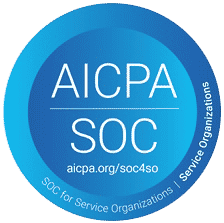Today, we’re discussing a critical topic that has significant implications for the food industry, the Food Safety Modernization Act, better known as FSMA. Let’s look at an overview of FSMA.
The Food Safety Modernization Act, signed into law in 2011, represents the most comprehensive overhaul of food safety laws in over 70 years. Its primary goal is to shift the focus of federal regulators from responding to contamination to actually preventing it. This proactive approach is crucial in ensuring that the food we consume is safe and healthy.
Let’s look at a few key provisions from FSMA. FSMA consists of several key provisions that all food facilities must adhere to. We’re going to take a look at five.
1. Preventative Controls
Food facilities must develop and implement written food safety plans that identify potential hazards and outline preventative measures.
2. Inspection and Compliance
The FDA has increased its inspection frequency, particularly for high-risk facilities, to ensure compliance with safety standards.
3. Imported Food Safety
Importers must verify that their foreign suppliers have adequate preventative controls in place.
4. Intentional Adulteration Rule
This rule mandates that facilities develop a food defense plan to protect against intentional contamination.
5. Response and Recall
The FDA now has mandatory recall authority to swiftly remove contaminated food products from the market.
These provisions enhance food safety, protect consumers, and reduce foodborne illness. What impact has this had on the food industry? Implementing FISMA has significantly impacted the food industry. According to the CDC, foodborne illness affect nearly 48 million people annually in the U. S., leading to over 3000 deaths.
Companies must invest in better safety protocols, employee training, and advanced monitoring systems to comply with these new regulations. While this can be challenging, it ultimately leads to safer food production and greater consumer confidence. The importance of the intentional adulteration rule, a crucial aspect of FSMA, is the requirement that companies implement strategies to protect their food supply from intentional contamination.
Our CEO Brandon Schwarz emphasized in his article on Food Industry Executive, that the intentional adulteration rule pushes companies to think beyond traditional food safety practices and consider potential threats that could compromise the integrity of our food supply. This rule is a key component in safeguarding public health and maintaining trust in our food systems.
Indeavor’s role in supporting FSMA compliance. At Indeavor, we understand the complexities and demands of FSMA compliance. Our workforce management solutions help companies streamline their operations, ensuring that they can meet these stringent safety requirements efficiently. By optimizing labor management, we enable companies to focus more on maintaining high safety standards and less on administrative burdens.
Let’s take a look at the FSMA Readiness Checklist. To help companies navigate FSMA compliance, we offer an FSMA Readiness Checklist. This comprehensive guide covers essential steps from risk assessment to employee training, ensuring that food facilities are well prepared to meet regulatory requirements. It is a valuable resource for any company looking to enhance its food safety practices, and you can visit the Indeavor website to learn more and to access this Readiness Checklist.
Looking at a case study, successful compliance. Let me share an example of how we’ve helped a major food producer comply with FSMA. By integrating our scheduling compliance solutions, this company enhanced its previous controls, reduced inspection times, and improved overall food safety practices. With the implementation of Indeavor’s workforce management software, they were able to automate 90 percent of their scheduling processes and eliminate 95 percent of scheduler-related grievances. This not only ensured regulatory compliance but also boosted operational efficiency and employee satisfaction.
In conclusion, FSMA has undoubtedly raised the bar for food safety, making it imperative for companies to adopt advanced solutions to stay compliant. Indeavor is here to support the food industry in navigating these challenges. Stay tuned for more insightful discussions on how we can drive excellence in workforce management and compliance.



